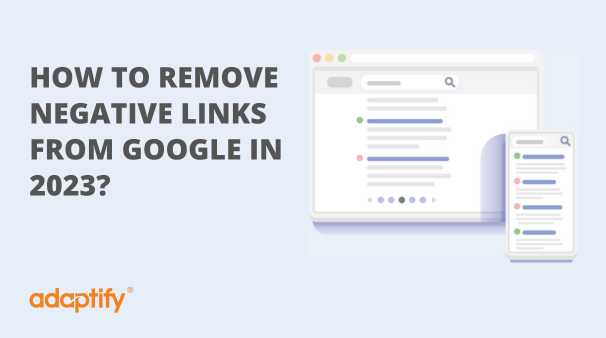In today’s interconnected world, the significance of reputation management has grown exponentially. The majority of individuals now rely on the internet to evaluate companies and individuals before engaging with them. A negative online reputation can deter potential customers from making purchases, discourage people from forming personal connections, and dissuade others from interacting with a company.
This comprehensive guide deals with different aspects of online reputation management. Here we will elucidate its diverse facets and highlight the cruciality of maintaining a positive public perception. Understanding who controls your brand reputation and learning effective strategies to manage your online image will be central to our exploration. Additionally, we will address common inquiries surrounding reputation management to offer a well-rounded understanding of this vital subject.
Understanding Internet Reputation Management
Reputation management is the practice of influencing and controlling the public perception of an individual, organisation, brand, or entity. Its primary goal is to shape the way others perceive and think about a particular entity by managing online and offline information and interactions. In the digital age, reputation management has become increasingly important due to the widespread use of social media and online platforms where opinions and information spread rapidly.
The primary aspects of reputation management involve:
⦁ Online presence monitoring
⦁ Responding to feedback
⦁ Crisis management
⦁ Search Engine Optimisation (SEO)
⦁ Content Creation
⦁ Social Media Management
⦁ Review and Rating Management
It involves the following benefits:
- Increased Trust and Credibility
- Competitive Advantage
- Talent Attraction
- Crisis Resilience
Types of Brand Reputation Management
- Online Reputation Management (ORM)
- Crisis Management
- Brand Reputation Management
- Personal Reputation Management
- Review and Testimonial Management
- Media Relations
- Employee Reputation Management
- Social Responsibility Management
- Influencer Reputation Management
Why is Online Brand Reputation Management Important?
- Building Trust and Credibility
- Influence on Consumer Decisions
- Crisis Preparedness and Damage Control
- Competitive Advantage
- Employee Attraction and Retention
- Investor Confidence
- Online Visibility and Brand Perception
- Long-Term Business Sustainability
- Brand Resilience
- Positive Word of Mouth
- Media Relations and Public Perception
Who Controls Your Reputation?
- Your Actions and Behaviour
- Communication and Messaging
- Customer and Stakeholder Experiences
- Online Presence
- Corporate Social Responsibility (CSR) Initiatives
If you are an organisation, you can control the social and environmental initiatives you undertake. Engaging in responsible business practices can positively influence your reputation.
However, despite these areas of control, it’s important to recognise that you do not have full control over your reputation. Other external factors and stakeholders play a significant role:
- Public Perception
- Media and Press Coverage
- Word of Mouth and Social Proof
- Competitors and Rivals
- Online Reviews and social media
How to Manage Your Online Reputation
- Monitor Your Online Presence: Regularly search for your name, company, or brand on search engines and social media platforms. Use tools like Google Alerts to receive notifications when new content mentioning you is published online.
- Be Mindful of Social Media: Be cautious about what you post on social media platforms. Avoid sharing controversial or inappropriate content that could reflect negatively on your reputation.
- Create and Optimise Positive Content: Take control of your online narrative by creating and optimising positive content. This could include a personal website, a professional LinkedIn profile, blog posts, or articles showcasing your expertise.
- Engage Positively: Interact thoughtfully and professionally with others online. Respond to comments and messages courteously, even in the face of criticism.
- Address Negative Content: If you come across negative or false information about you, address it calmly and factually. Try to resolve the issue privately when possible and avoid engaging in public arguments.
- Request Removal of Inaccurate Content: If you encounter false or defamatory content, contact the website or platform hosting the content and request its removal. Be prepared to provide evidence to support your claim.
- Encourage Positive Reviews: For businesses, encourage satisfied customers to leave positive reviews on review platforms. Respond to reviews, both positive and negative, professionally, and empathetically.
- Protect Personal Information: Be cautious about sharing personal information online. Ensure that your privacy settings are appropriately configured on social media platforms.
- Build Trust and Authority: Share valuable and informative content related to your area of expertise. It can help establish you as a trusted authority in your field.
- Apologise and Learn from Mistakes: If you make a mistake online, acknowledge it, apologise if necessary, and demonstrate what you've learned from the experience. Authenticity and humility can go a long way in rebuilding trust.
- Seek Professional Help: If you face a significant online reputation crisis or find it challenging to manage your online presence effectively, consider consulting with a reputation management expert or public relations professional.
How to Manage Your Online Reputation
- Proactive Communication
- Online Presence Management
- Customer Satisfaction and Service
- Crisis Management
- Brand Image and Messaging
- Corporate Social Responsibility (CSR)
- Personal Actions and Behaviour
- Addressing Feedback
- Media Relations
- Authenticity and Consistency
Internet Reputation Management Checklist
- Monitor Online Mentions
- Assess Your Current Reputation
- Claim Your Online Profiles
- Optimise Your Profiles
- Encourage Positive Reviews
- Respond to Reviews and Feedback
- Manage Social Media Presence
- Content Marketing
- Search Engine Optimisation (SEO)
- Online Crisis Management Plan
- Address Legal Issues
- Monitor Competitors
- Educate Your Team
- Stay Transparent and Authentic
- Measure Your Efforts
- Stay Engaged with Your Audience
- Build a Strong Brand
- Train Your Customer Support Team
- Stay Consistent
Final Thought
In the modern digital era, reputation management holds immense significance as it directly impacts public perception, trust-building, and the overall success of individuals, businesses, and brands. A proactive approach to managing one’s online presence, along with meaningful engagement with the audience, diligent review monitoring and response, and adept handling of negative events or publicity, all collectively contribute to shaping how one is perceived by others.
The essence of reputation management lies in the continuous effort invested in maintaining a positive image in the eyes of stakeholders. It is not a one-time task but an ongoing process that demands adaptability and a relentless focus on upholding a favourable reputation. Through strategic efforts and persistent dedication, individuals and organisations can wield the power to influence how they are perceived in the digital landscape.
At Adaptify, we specialise in reputation management services to help businesses rebuild their brand’s image. Our expert team will work with you to create a tailored strategy that includes communication, proactive online reputation management, and brand perception enhancement.
Let us navigate the complexities of reputation recovery, so you can focus on confidently growing your business. Contact us today for a free strategic consultation.
Frequently Asked Questions
Monitoring your reputation online is important for individuals and businesses alike. It allows you to stay informed about what others are saying about you or your brand and enables you to address any negative feedback or false information promptly. Here are some steps to help you effectively monitor your online reputation:
Set up Google Alerts: Google Alerts is a free service that notifies you via email whenever new content containing specified keywords is published on the web. Create alerts using your name, brand name, or any other relevant keywords you want to monitor.
Use Social Media Monitoring Tools: There are various social media monitoring tools available that can help you track mentions and comments about you or your brand on social media platforms.
Monitor Review Websites: Keep an eye on review websites like Yelp, Google My Business, TripAdvisor, and others that are relevant to your industry. Check for customer reviews and respond to them, whether they are positive or negative.
Regularly Search Your Name or Brand: Conduct manual searches on search engines using your name, brand name, and related keywords. It will help you find any content or mentions that may not be covered by automated tools.
Engage in Social Listening: Beyond tracking direct mentions, pay attention to conversations related to your industry or topics of interest. It will give you valuable insights into public sentiment and emerging trends.
Respond Thoughtfully: When you come across feedback, reviews, or mentions, respond thoughtfully and professionally. Address any negative comments with empathy and a willingness to resolve issues.
Encourage Positive Reviews: If you are a business owner, encourage satisfied customers to leave positive reviews on relevant review websites. Positive reviews can help counterbalance any negative feedback.
Protect Your Personal Information: Be cautious about the personal information you share online to prevent potential misuse or reputation damage.
Build a Positive Online Presence: Create and maintain a positive online presence through your website, social media profiles, and other content. It will help establish a strong foundation for your reputation.
Remember that online reputation management is an ongoing process. Stay vigilant, and consistently monitor your online presence to maintain a positive image in the digital world. If you find any serious issues affecting your reputation, consider seeking assistance from online reputation management professionals.
Discovering negative information about your reputation online can be concerning, but it’s essential to handle the situation calmly and strategically. Here’s a step-by-step guide on how to address negative information about your reputation online:
Stay Calm and Assess the Situation: Take a deep breath and avoid reacting emotionally. Assess the information objectively to understand the context and validity of the negative content.
Verify the Accuracy: Make sure the negative information is accurate and not a case of mistaken identity or false claims. If it’s false or misleading, gather evidence to support your position.
Develop a Response Plan: Based on the nature of the negative information and its potential impact, create a plan on how to address it. Consider the appropriate platforms and communication channels for your response.
Respond Appropriately: Craft a well-thought-out and professional response. Be honest, transparent, and avoid getting defensive. Acknowledge any mistakes made if applicable and offer solutions or actions you are taking to resolve the issue.
Utilise SEO Techniques: If negative content ranks high on search engine results, consider implementing search engine optimisation (SEO) strategies to push positive and accurate information higher in search results.
Report False or Defamatory Content: If the negative information is false, defamatory, or violates the policies of the platform, report it to the website administrators or content moderators to have it reviewed and potentially removed.
Learn from Feedback: Use negative feedback as an opportunity to learn and improve. Analyse the feedback to identify areas where you can make positive changes or address shortcomings.
Monitor Continuously: Continue monitoring your online presence regularly to ensure that any new negative content is addressed promptly.
Seek Professional Help: If the situation is severe or beyond your control, consider seeking assistance from online reputation management experts. They can offer specialised advice and strategies to manage and repair your online reputation effectively.
Maintaining a positive online reputation is an ongoing process. By handling negative information with care and professionalism, you can mitigate its impact and focus on building a strong and positive digital presence.
The time it takes to improve an online reputation can vary significantly depending on various factors. To be more specific, the process of improving an online reputation usually takes several months to a year or more. Here’s a breakdown of the timeline:
Initial Assessment and Strategy Development (1-2 weeks): The first step involves assessing the current state of your online reputation and developing a tailored strategy to address any negative content and build a positive online presence.
Content Creation and SEO (1-3 months): Creating and optimising positive content to outrank negative content in search results takes time. Consistent efforts in search engine optimisation (SEO) are needed to improve the visibility of positive content.
Reputation Monitoring and Management (Ongoing): Reputation management is an ongoing process. Continuously monitor your online presence, respond to feedback, and address new negative content promptly.
Public Perception and Trust Building (Several months to a year): Building trust and improving public perception require consistent positive interactions, responsiveness, and transparency. This process can take several months to a year or more, depending on the severity of the initial reputation issues.
Social Media Engagement (Ongoing): Building a positive online reputation through social media requires active engagement and the cultivation of a positive online community. This effort should be ongoing and consistent.
Review and Rating Management (Ongoing): For businesses, managing online reviews and ratings is crucial for reputation improvement. Encouraging positive reviews and addressing negative reviews is an ongoing process.
It’s important to note that the timeline provided above is a general estimate and can vary based on the specific circumstances of each individual or business. Some reputation management efforts may yield quicker results, while others may take longer. Consistency, proactive measures, and responsiveness are key to achieving sustained improvement in online reputation.
If the negative content is particularly damaging or challenging to address, seeking help from online reputation management professionals can expedite the process and ensure effective strategies are employed. Remember, maintaining a positive online reputation is an ongoing commitment that requires vigilance and effort over time.
Hiring a reputation management company can provide several valuable benefits for individuals and businesses facing online reputation challenges. Here are some compelling reasons why you might consider hiring a reputation management company:
Expertise and Experience: Reputation management companies specialise in managing online reputations. They have the knowledge, skills, and experience to effectively address various reputation issues and implement tailored strategies for each client.
Save Time and Resources: Managing online reputation can be time-consuming and requires ongoing effort. By outsourcing this task to a reputation management company, you can free up your time and focus on other essential aspects of your business or personal life.
Crisis Management: Reputation management companies are well-versed in handling reputation crises. They can guide you through challenging situations, help you respond appropriately, and mitigate the damage to your reputation.
SEO and Content Management: A reputable reputation management company can optimise your online content and use search engine optimisation (SEO) techniques to promote positive information about you or your brand, while pushing down negative content in search engine results.
Online Monitoring: These companies use sophisticated tools to monitor your online presence, keeping track of mentions, reviews, and feedback across various platforms. This proactive approach allows them to identify and address reputation issues promptly.
Professional Response to Negative Feedback: Reputation management companies know how to craft well-structured and professional responses to negative feedback or reviews. It helps in resolving customer issues and displaying a commitment to customer satisfaction.
Customised Strategies: Each individual or business has unique reputation management needs. A reputable reputation management company will tailor your strategies to suit your specific requirements and objectives.











